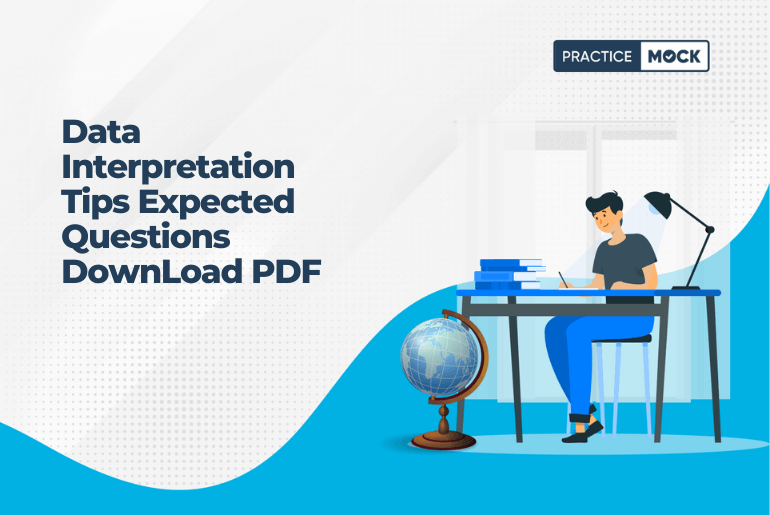Data Interpretation Tips: Data Interpretation (DI) is a vital component of various competitive exams, testing your ability to analyze and extract valuable insights from data. To excel in DI and ensure you’re prepared for expected questions, it’s essential to understand the key concepts and develop effective problem-solving strategies. In this article, we’ll provide you with valuable DI tips, expected questions, and even a downloadable PDF resource to aid your preparation.
Understand the Basics of Data Interpretation
Before diving into DI questions, it’s crucial to grasp the fundamentals. Familiarize yourself with various data presentation formats, such as tables, bar graphs, pie charts, and line graphs. Understand how to extract information, calculate percentages, and interpret trends from these visuals. Start your preparation by reviewing basic data representation techniques.
Practice Regularly
Practice is the cornerstone of mastering DI. Work on a variety of DI problems to build your analytical skills. There are numerous books, online resources, and mock test series available that offer DI questions of varying difficulty levels. Regular practice will help you become comfortable with interpreting data swiftly and accurately.
Focus on Key Concepts
DI questions often involve concepts like percentage calculations, ratios, averages, and proportions. Ensure you have a strong understanding of these mathematical principles, as they are frequently tested in DI. Brush up on these topics and practice related problems to sharpen your skills.
Develop a Systematic Approach
Establish a systematic approach to tackle DI questions. Start by carefully reading the information provided, identifying the main data points, and understanding the context. Plan your approach and calculations in a structured manner to minimize errors and save time during the exam.
Time Management
DI questions can be time-consuming. To excel in this section, it’s essential to manage your time effectively. In practice, set time limits for each question to get a feel for the pacing required during the actual exam. Remember that not all questions in a DI set may carry the same weight, so allocate your time accordingly.
Expected DI Question Types
While DI questions can vary in complexity, some common question types include:
- Comparing data from multiple years or sources
- Calculating percentages, averages, or growth rates
- Interpreting trends and making predictions
- Finding the most significant or least significant data points
Downloadable PDF Resource
To aid your DI preparation, we’ve provided a downloadable PDF resource that includes a collection of expected DI questions and solutions. This resource will serve as a valuable addition to your study material and offer you a variety of DI problems to practice.
In conclusion, mastering Data Interpretation is essential for success in competitive exams. Follow these tips, practice regularly, and make use of the downloadable PDF resource to sharpen your DI skills. With dedication and consistent effort, you can enhance your ability to interpret data and tackle DI questions with confidence.
- Sign Up on Practicemock for Updated Current Affairs, Free Topic Tests and Free Mini Mocks
- Sign Up Here to Download Free Study Material
Free Mock Tests for the Upcoming Exams
- IBPS PO Free Mock Test
- RBI Grade B Free Mock Test
- IBPS SO Free Mock Test
- NABARD Grade A Free Mock Test
- SSC CGL Free Mock Test
- IBPS Clerk Free Mock Test
- IBPS RRB PO Free Mock Test
- IBPS RRB Clerk Free Mock Test
- RRB NTPC Free Mock Test
- SSC MTS Free Mock Test
- SSC Strenographer Free Mock Test
- GATE Mechanical Free Mock Test
- GATE Civil Free Mock Test
- RRB ALP Free Mock Test
- SSC CPO Free Mock Test
- AFCAT Free Mock Test
- SEBI Grade A Free Mock Test
- IFSCA Grade A Free Mock Test
- RRB JE Free Mock Test
- Free Banking Live Test
- Free SSC Live Test



